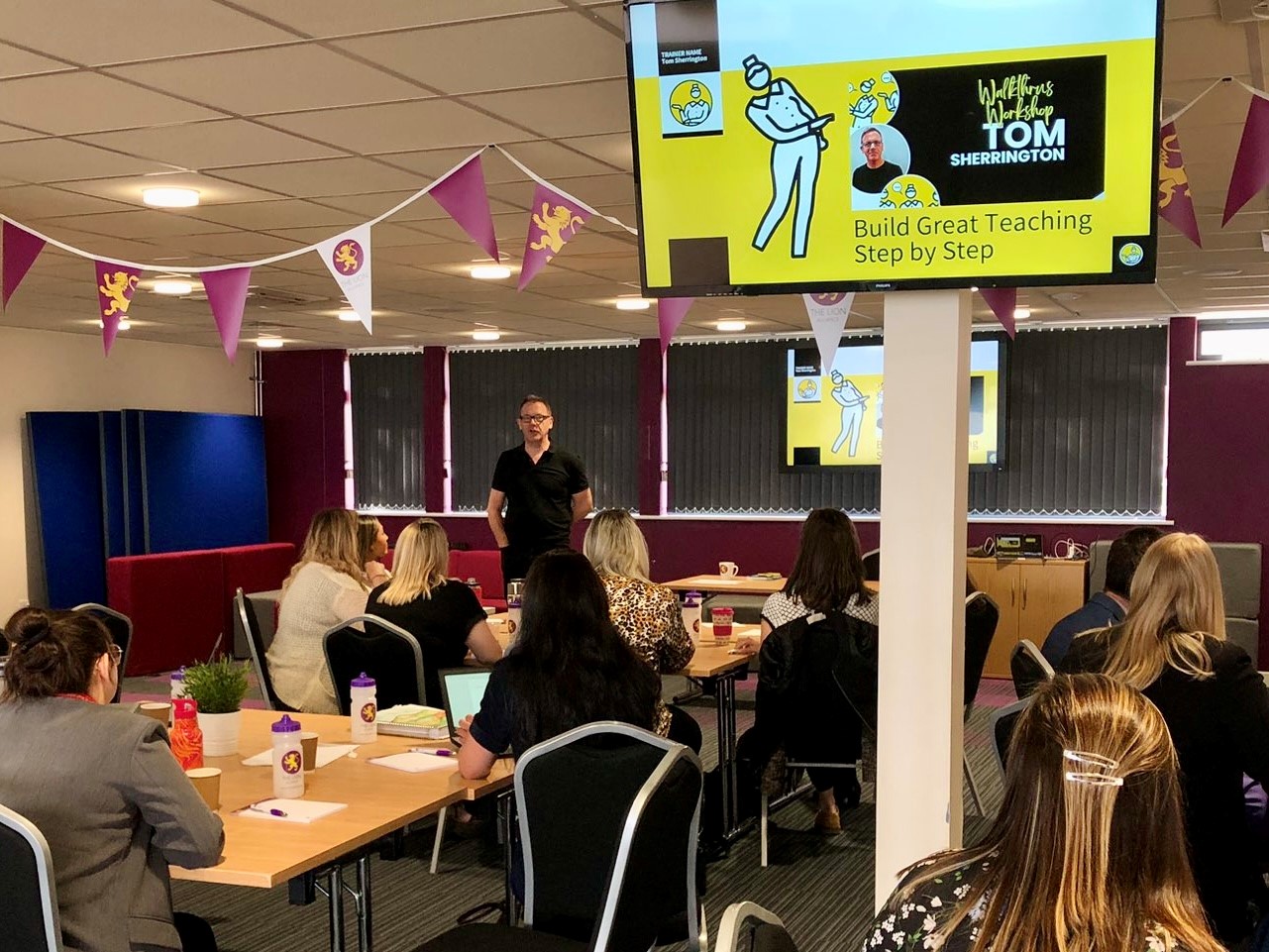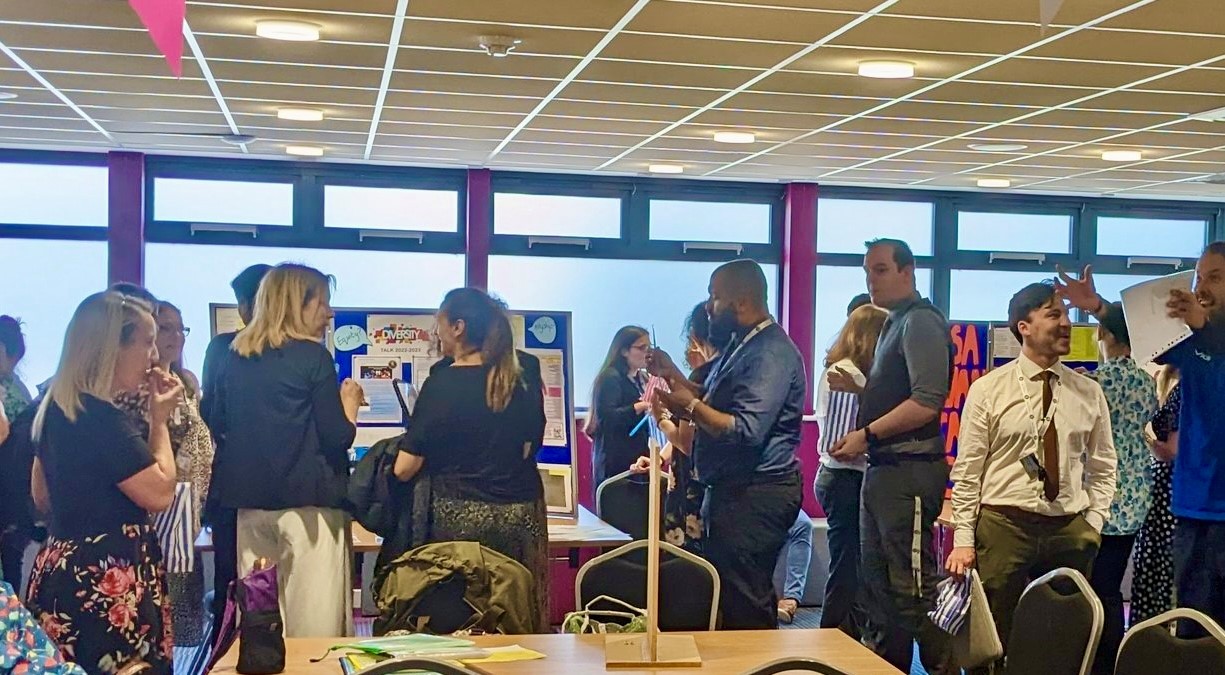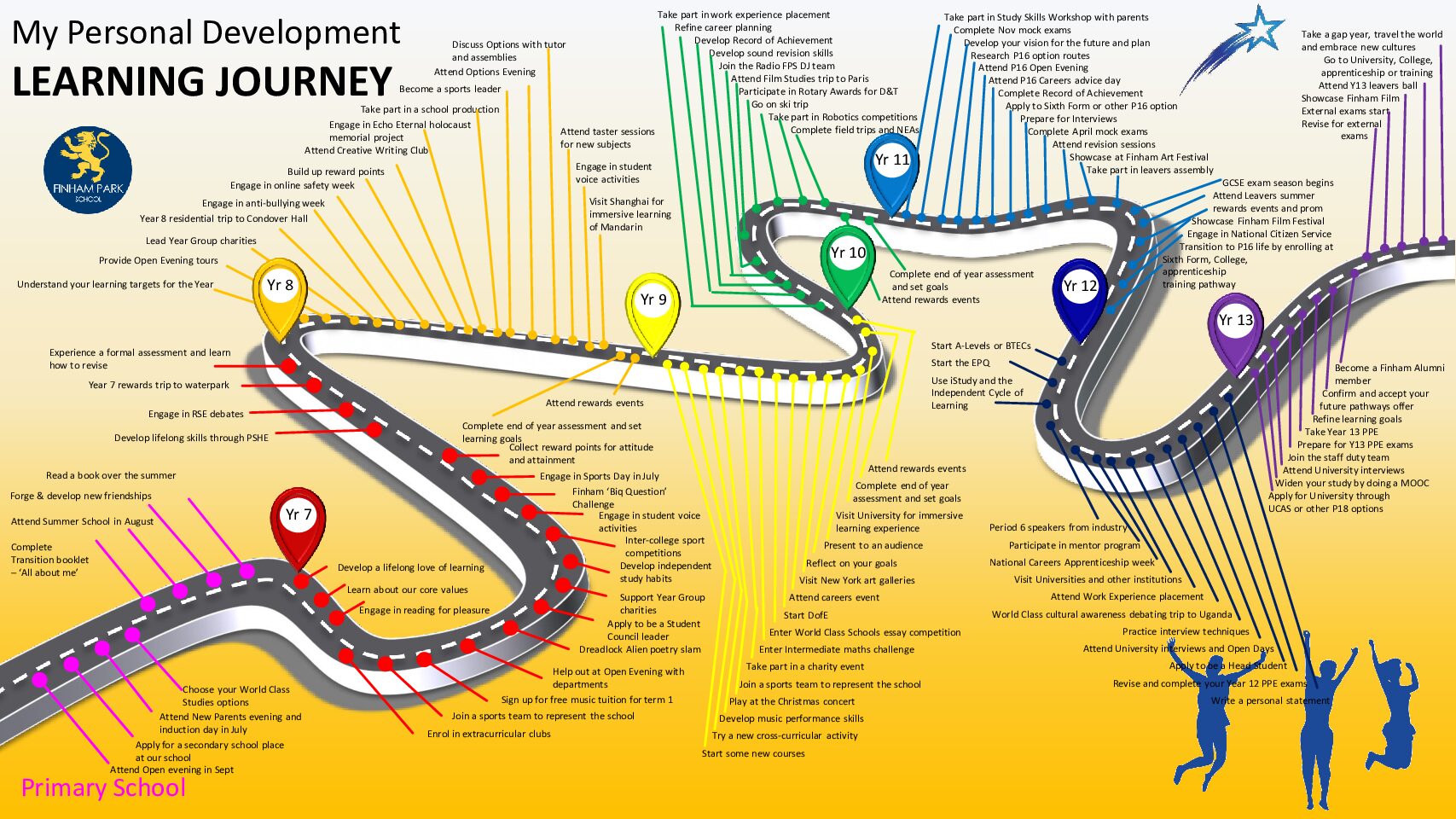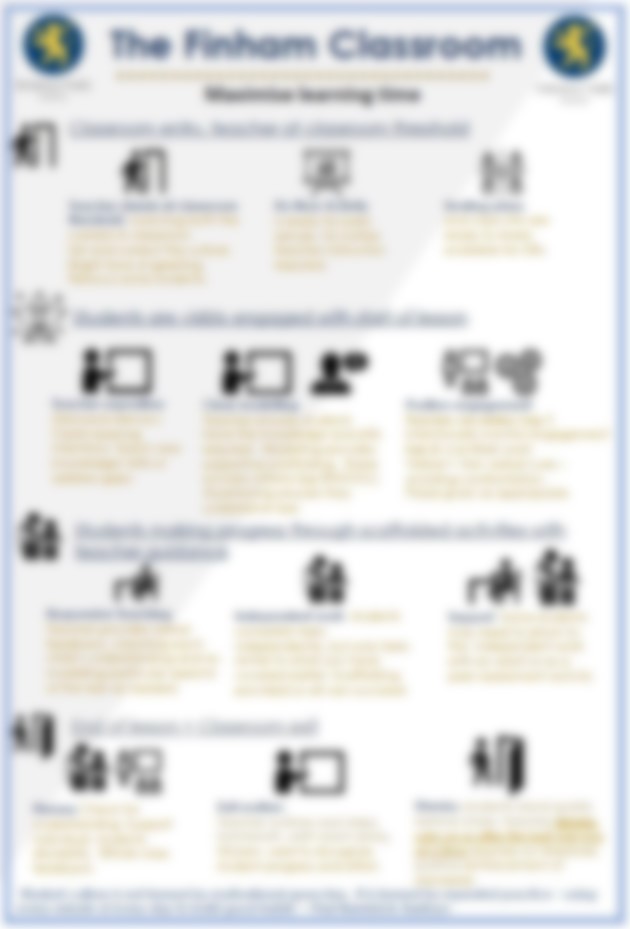Curriculum Overview
What do we want students to be able to know and do by the time they leave?
Curriculum intentions and learning aims
Founded in our core values of courageousness, perseverance, integrity, humility and kindness, Finham Park’s curriculum is accessible to all, providing our young people with the support they need to equip them for the adventures ahead. A broad offer matches the diverse needs of our students, helping everyone to discover their strengths and experience success.
Fostering a reading culture and making links across the subjects, we provide opportunities for all, both within and outside of the classroom. We aspire to give our students the time of their lives and empower them to be scientifically, mathematically and culturally literate. By providing a compassionate, vibrant learning environment and passionately delivering the powerful knowledge necessary for our students to become well rounded, independent thinkers, we believe that we offer a world class curriculum which prepares them to participate in local, national and global communities.
The purpose of the curriculum is to help pupils to:
- develop lively, imaginative and enquiring minds
- acquire knowledge and skills relevant to adult life and a world of rapid and continuous technological change
- have sound numeracy, literacy and ICT skills
- develop personal and moral values, respect for shared values and for other cultures, religions and ways of life
- develop an understanding of the communities in which they live-both locally and the wider world
- appreciate human achievements and aspirations
- take their place in society as informed, confident and responsible citizens
More detail can be found in the individual subject pages on the website or in our curriculum policy.
Key Stage 3
KS3 Mixed Attainment Teaching at Finham Park School
Pupils at Finham Park School are taught the full National Curriculum at Key Stage 3 in mixed-attainment classes in Years 7-9. Successive researchers over decades have found time and again that (despite a common misconception that strict setting or streaming pupils will lead to the best progress and outcomes) children make the most and fastest progress when grouped with pupils with a range of different talents, attainment levels and skills. On the whole, they are also proven to be much happier and less anxious during their education as a result of being grouped in this way for their learning.
Our approach is based on the latest research from the Education Endowment Foundation.
In an established school it is difficult to challenge the status quo and 'received wisdoms' based on parents' own experiences of how schools were organised in the past. However, recent research from John Hattie (Visible Learning) found that teaching pupils different materials in strict attainment sets has one of the weakest impacts of everything a teacher might do in terms of pupils' progress and attainment.
We have also considered Schreen & Bosker's work on school effectiveness.
This work also found limited impact of grouping pupils by attainment. We also have the ability to use the evidence, including that considered in this recent article from the Chartered College of Teaching.
Progress Check reporting on Attainment through Assessment Criteria
Pupils at Finham Park School will be assessed at three points during each year against published assessment criteria which can be found on the relevant subject webpage. These assessment points determine whether pupils are 'working towards', 'working at', or are performing at 'greater depth' in terms of expected standards within each year. This informs their future learning needs. Their academic progress within the year is recorded through their 'Attitude to Learning' grade which is also reported three times per year. The assessments are moderated to ensure their is integrity in the quality of judgements being made. An example is below.

Curriculum Implementation & Instructional Coaching
“I think the only way that we can improve teacher quality is to create a culture of continuous improvement. I think that every teacher needs to get better. This job we’re doing is so hard that one lifetime isn’t enough to master it. So every single one of us needs to accept the commitment to carry on improving our practice until we retire or die. That is the deal.”
Professor Dylan Wiliam
Teaching WAlthrus - research informed practice
The driving force behind our teaching and learning strategy is creating a culture of continuous improvement both for teachers and students. At the heart of our CPD programme is the belief that every teacher can improve and in order to do this we have adopted the Instructional Coaching model as described in the Tom Sherrington and Oliver Caviglioni’s Teaching Walkthrus which acts as a manual, underpinned by pedagogical research, to describe the most effective teaching behaviours in 5 different areas: behaviour and relationships; curriculum planning; explaining and modelling; questioning and feedback; practice and retrieval.
The coaching pairs evaluate the effectiveness of the Walkthrus and their own teaching behaviours, setting short term targets for each other which are reviewed in the following TALK session.





